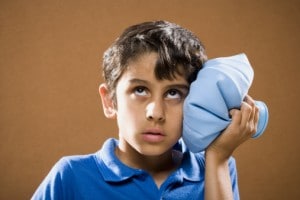 Miami dentists have seen an increase in the number of patients who grind their teeth regularly. Children, especially, exhibit weakened tooth enamel and stress fissures along the molars. These two telltale signs of teeth grinding are alarming for Miami dental professionals for several reasons. Teeth grinding leads to poor oral health and larger health issues in both children and adults.
Miami dentists have seen an increase in the number of patients who grind their teeth regularly. Children, especially, exhibit weakened tooth enamel and stress fissures along the molars. These two telltale signs of teeth grinding are alarming for Miami dental professionals for several reasons. Teeth grinding leads to poor oral health and larger health issues in both children and adults.
The signs of teeth grinding usually go unnoticed by parents because they are hard to notice without an up close and detailed examination of the teeth. Dental professionals, on the other hand, are capable of seeing the signs of teeth grinding during dental cleanings and checkups. These signs include stress fractures in the molars, fissures, and other damage to the outer enamel of the teeth. Assure a Smile has seen an increased number of young patients whose teeth exhibit these signs of damage. It is alarming to see the signs of teeth grinding in children for at least two reasons. First, it means the child is grinding their teeth, either consciously or unconsciously. Children who grind their teeth grow into adults who grind their teeth, and adults who grind their teeth increase their chances of developing mild to severe oral health problems. Second, teeth grinding habits may be hard to break, especially when they are unconscious.
Assure a Smile has prepared the following as a reference for parents of children who grind their teeth:
What is Bruxism?
Bruxism is the technical term for teeth grinding. Typically, the condition is characterized by a conscious or unconscious grinding of the teeth or clenching of the jaw. Night Bruxism occurs at night while the individual is unconscious and sleeping. Bruxism may also occur during the day, most often as jaw clenching.
What are the dangers of Bruxism?
Bruxism affects each individual differently. Some exhibit very mild symptoms that last only a short period of time. Others, however, exhibit severe teeth grinding habits for a long period of time. In the case of the latter, the individual risks a heightened chance of chronic headaches, jaw disorders, and inflicting tooth damage.
How do I know if my child has Bruxism?
It is hard to tell if an individual has Bruxism because it most often occurs while they sleep. However, be attentive to the following signs:
A dull and persistent headache, especially in the morning hours.
Dull pains in the jaw.
Stress fractures or fissures in the molars.
Chipped teeth.
Overwhelming feelings of stress or anxiety.
Diagnosing and Treating Bruxism
Bruxism can be diagnosed by your dental professional. Assure a Smile recommends you ask your dentist about Bruxism during your next cleaning or checkup. Treatment of Bruxism varies, depending on intensity and individual needs. However, it is a habit that needs to be broken through both technology and lifestyle changes. Night guards, for example, may be worn to keep teeth from grinding into one another during the night. To supplement this safeguard, however, the individual must also make efforts to break their teeth grinding habit. Individuals may consider stress management, reduced caffeine intake, and consciously watching for clenching or grinding of the teeth during the day. Engaging in each of these precautionary measures will help individuals to slowly break the teeth grinding habit.





